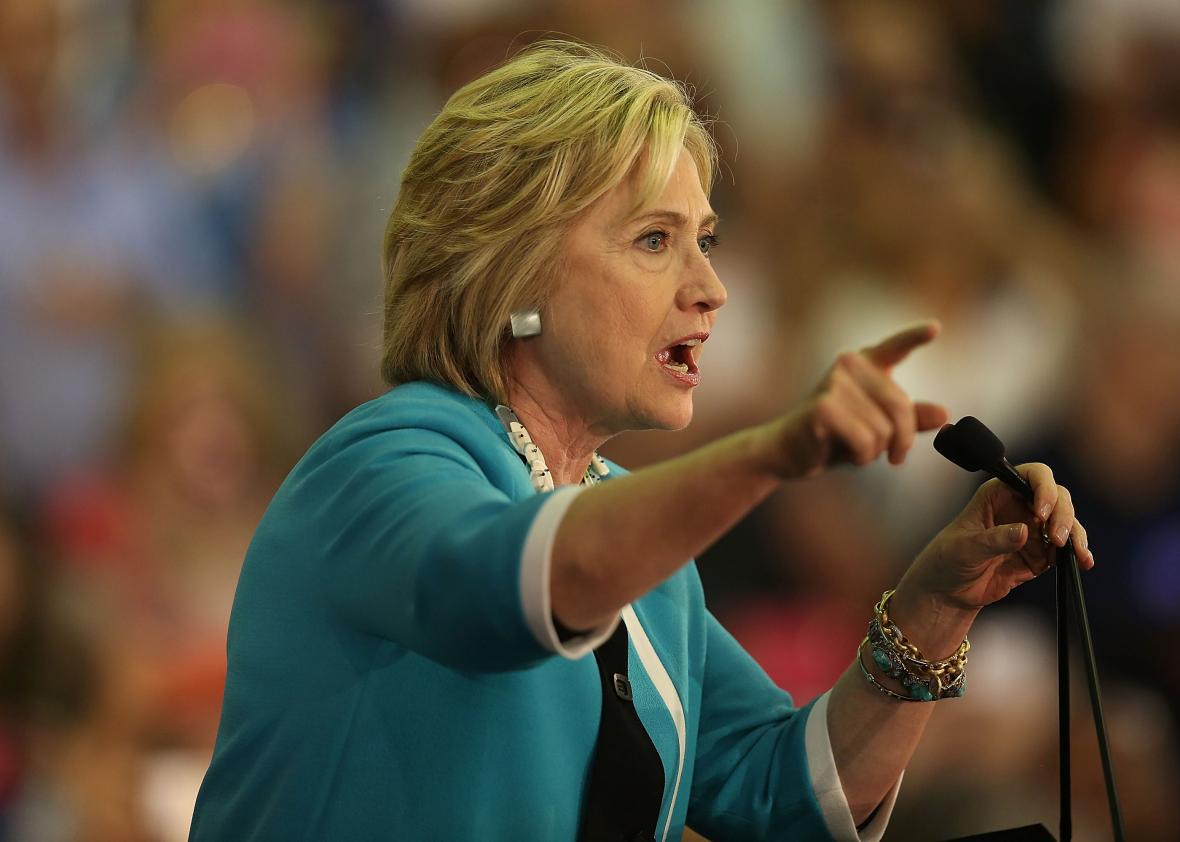The Great Debate debate has been settled by the pollsters: In the eyes of Democratic voters, Hillary Clinton was the strongest candidate on stage during the last week’s primary debate. The potentially more significant development, though, is that Clinton is now trending up in the national polls—something that should calm the nerves of her supporters further and that could make it more difficult for Joe Biden to justify a late entry into the Democratic race (if he ever makes up his mind).
According to a new Washington Post-ABC News poll out Tuesday, 45 percent of likely Democratic voters said they thought Hillary won the debate, more than twice the 19 percent who said the same thing about Bernie Sanders. The pollsters don’t appear to have limited the question only to respondents who tuned in for the debate, but the results mirror those of a separate CNN survey that did. In that poll, released Monday, 62 percent of registered Democrats who watched all or most of last week’s debate scored the event for Clinton—far more than the 35 percent who thought Sanders delivered the stronger performance on stage.
Those results are also in line with a trio of other professional surveys that were conducted last week. In an NBC/Survey Monkey poll released Friday morning, 56 percent of Democrats who watched the debate declared Hillary the stronger performer, compared with only 33 percent who thought Sanders was. Likewise, in a Huffington Post/YouGov survey, Democrats also gave Hillary the edge 55 percent to 22 percent. A Gravis Marketing phone survey of Democratic voters, meanwhile, gave Clinton the advantage, 62 percent to 30 percent.
Those numbers back up the assessment that I (and many other analysts) offered immediately following last week’s debate: Hillary Clinton won. Sanders supporters, though, disagreed (um, let’s say) passionately. They pointed to a string of unscientific online polls conducted by Slate and other media outlets that showed their man as the runaway winner. More than a few Bernie fans used those results to suggest that any reporter who thought otherwise must be on the Clinton payroll. As I explained at the time, though, those informal surveys—which let passionate respondents vote more than once and benefit grassroots campaigns like Bernie’s—don’t tell us nearly as much as the surveys conducted by professional pollsters who take steps to find a representative sample of respondents.
The good news for Clinton, meanwhile, extends beyond her debate performance: The polls conducted in the wake of the last week’s showdown suggest that she’s now better positioned than she was heading into the event. The WaPo/ABC poll shows she has the support of 54 percent of Democratic voters—up 12 points from where she was in the same poll early last month. Her lead on Sanders, meanwhile, climbed from 18 points to 31 points in that same period. Her gains haven’t been quite that large in some other recent polling, but she’s seen her support climb by an average of 7 points in the four major polls to come out since the debate, and she has extended her lead on Sanders in three of them. Bernie’s support, meanwhile, has held mostly steady, which suggests she’s digging into the numbers of the not-yet declared Biden and winning over undecided voters. The current trend may be short-lived once Clinton’s post-debate glow wears off—and if Biden were to finally get off the sidelines—but for now, Hillary’s polling numbers are finally heading upward again after slipping throughout the summer.
That’s not to suggest Sanders didn’t also help his cause in Las Vegas—he clearly did. Bernie, though, didn’t need to lose on stage for Hillary to win. Clinton entered the night as the overwhelming favorite and all she needed to do was win in the eyes of those voters who already supported her. It appears, though, she did even more than that.
